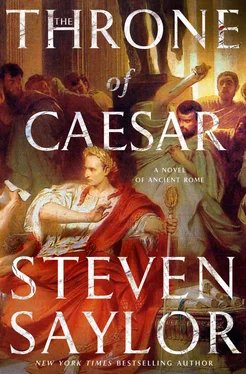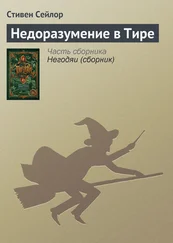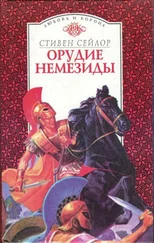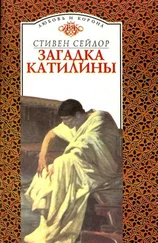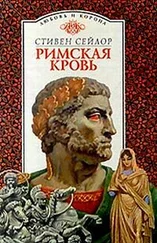Стивен Сейлор - The Throne of Caesar
Здесь есть возможность читать онлайн «Стивен Сейлор - The Throne of Caesar» весь текст электронной книги совершенно бесплатно (целиком полную версию без сокращений). В некоторых случаях можно слушать аудио, скачать через торрент в формате fb2 и присутствует краткое содержание. Год выпуска: 2018, Издательство: St. Martin's Press, Жанр: Исторический детектив, на английском языке. Описание произведения, (предисловие) а так же отзывы посетителей доступны на портале библиотеки ЛибКат.
- Название:The Throne of Caesar
- Автор:
- Издательство:St. Martin's Press
- Жанр:
- Год:2018
- ISBN:нет данных
- Рейтинг книги:5 / 5. Голосов: 1
-
Избранное:Добавить в избранное
- Отзывы:
-
Ваша оценка:
- 100
- 1
- 2
- 3
- 4
- 5
The Throne of Caesar: краткое содержание, описание и аннотация
Предлагаем к чтению аннотацию, описание, краткое содержание или предисловие (зависит от того, что написал сам автор книги «The Throne of Caesar»). Если вы не нашли необходимую информацию о книге — напишите в комментариях, мы постараемся отыскать её.
The Throne of Caesar — читать онлайн бесплатно полную книгу (весь текст) целиком
Ниже представлен текст книги, разбитый по страницам. Система сохранения места последней прочитанной страницы, позволяет с удобством читать онлайн бесплатно книгу «The Throne of Caesar», без необходимости каждый раз заново искать на чём Вы остановились. Поставьте закладку, и сможете в любой момент перейти на страницу, на которой закончили чтение.
Интервал:
Закладка:
“ It! ” cried the little boy as he rushed toward Caesar. He was twice as old as when I had last seen him in this garden, and almost twice as big, but still a bit small for a four-year-old, I thought. Perhaps it was his parents who had taught him to use an Egyptian word for “father”— it —instead of the Latin or Greek, as if this kept the relationship at some unofficial level, especially here in Rome, where the idea that an Egyptian prince might be heir to Caesar’s throne was so loathsome to the citizens of the Republic.
“Caesarion!” said Caesar, scooping the boy up in his arms, then loudly groaning as men of his age do when picking up a small child. He swung the boy about, then set him on the ground. One of the handmaidens quickly took Caesarion’s hand and led the child to one side.
“Permission to pass though Little Egypt, Your Majesty?” said Caesar, casting an arch glance at the queen .
“Permission granted,” she said, and from the playful look on her face I thought she might spring up and give him a kiss. Perhaps she would have, had not a visitor been present. She turned her eyes to me and held my gaze until, almost against my will, I made the requisite nod of obeisance. She was a visiting head of state, and I a Roman citizen of Equestrian status. It seemed only proper.
“I remember you, Gordianus-called-Finder.” The queen gave me a look almost as bewitching as the one she had cast at Caesar. Cleopatra was not a great beauty, if statues of Venus were the standard—her nose and chin were too prominent, almost manly—but she exuded a charm that was impossible to deny. This charm seemed only stronger now that she was in her middle twenties, with a voluptuous figure shown to great advantage by the moss-colored linen gown that hugged her snugly in all the right places.
“And I remember you, Your Majesty.”
She laughed as if I had said something quite absurd. Could anyone meet Cleopatra and forget the experience?
“Little Egypt?” I said, mostly to myself. I gazed around me, suddenly realizing that it was quite impossible for papyri to be flourishing and lily pads to be blooming in Rome in the month of Martius. I touched one of the papyri stalks and realized it was made of wood, carved and painted to look like the Egyptian plant. Now that I looked more closely, I saw that the lily pads were also replicas, as were most of the other Nilotic specimens in this Egyptian garden. Caesar saw the look on my face and laughed.
“To make the queen feel at home during her stay, I had this garden made for her,” he explained. “But I think the thing she likes best is the one she brought herself—this splendid statue of Isis, a gift to the people of Rome.”
“And I thank you, Caesar, for creating this space so congenial to the goddess—though I hope to see her officially installed in a newly dedicated temple, if not during this visit, then the next time I come to Rome.” She turned her gaze to me. “Caesar tells me that the people of the city never stopped loving the goddess, despite the opposition of some of your senators. With a new temple, the Roman people will benefit greatly from the blessings she will bestow.”
“Between Caesar’s wish to share great art with the people, and your desire to reacquaint us with Isis, we Romans are very fortunate,” I said. This elicited a small grimace of disapproval from Meto, but neither the Dictator nor the queen perceived any irony in my words. Indeed, Caesar was pleased.
“Beautifully stated, Gordianus. I would almost think that Meto inherited his gift for words from you, never mind that he’s adopted.”
“Speaking of gifts…” said Cleopatra. “Hammonius!”
At her summons, a man appeared from a break in the false papyri, dressed as I had seen palace officials in Alexandria, in a long linen gown with a broad leather belt. Behind him, wearing a metal collar and led on a tether as if he were some exotic beast, was a young man of very dark complexion, naked except for a scrap of cloth around his loins. The slave was a skinny fellow with a plain face, and there were curious scars, like ornamental markings, on his arms and chest, difficult to make out against his dark skin. Since he appeared neither especially beautiful nor strong, it was hard to see what made him a suitable gift, especially for a man who already possessed virtually everything a man could own. Perhaps he was a singer, I thought, or an acrobat; but his talent was of another sort.
“I asked and was told you don’t own one of these,” said Cleopatra. “I thought he might be useful to you in your travels. Or even here in Rome.”
“What is the fellow?” Caesar looked at the slave and cocked his head. “Those scars look familiar. Wavy lines…”
“They’re snakes,” said Meto. “Or symbols that stand for snakes. Don’t you remember? We saw such scars on a local tribe, when we cornered Cato’s forces in Africa.”
“Ah, yes,” Caesar said, then recited a line of poetry: “‘As a Punic Psyllus by touch charms a sleep-inducing asp…’”
“Very apt!” said Meto. The quotation was unknown to me.
Cleopatra laughed, and her son, seeing her delight, likewise laughed. “I own a few of these fellows,” she said, “but I’m told this one is the best. ”
“The best at what?” I asked.
“The Psylli are snake handlers,” said Meto.
“Oh, they’re much more than that,” said Cleopatra. “They’re immune to snakebites. In fact, if a snake bites a Psyllus, it’s the snake that dies. But more than that, the most talented of them, like this fellow, can suck the venom from a snakebite and tell exactly what sort of serpent it came from, and what sort of remedy may cure it. They practice a sort of magic that gives relief from other poisons as well. A taster can keep you from eating poison in the first place, but a Psyllus can save you afterward.”
“What a thoughtful gift,” said Caesar. “If you’re sure you can spare the fellow…”
“Of course. I have my own Psyllus here in Rome. I never travel without one. Nor should you, Caesar.”
Hammonius bowed deeply, then led the Psyllus away.
“My gratitude again, Your Majesty,” said Caesar. “Time spent with you is always a pleasure, but now I must confer with this citizen.” He nodded in my direction. “Will you excuse us, Your Majesties?” By using the plural he included the little prince, at whom he winked.
“You are excused,” said Cleopatra, giving him that look again. Caesar seemed trapped by it for a moment, then with a blink and a shiver he broke from her gaze and led us toward the house.
VII
We ascended a series of steps that ended at a wide terrace with a view of the gardens below and the Tiber in the distance. Off the terrace, heated by burning braziers, was a dining room with couches pulled into a square to face each other. Caesar indicated that I should take one and Meto another. He reclined on one elbow on the couch between us, which faced the terrace. The couches were upholstered with blue fabric, except for Caesar’s, which was purple, like his robe, and bordered with gold embroidery. Even his dining couch had been made to resemble a throne.
“Are you hungry, Gordianus?” he said. “Of course you are. You’ve been to Egypt and back this morning!”
I didn’t think I was hungry until I smelled the delicacies making their way toward us on silver platters carried by a trio of young male slaves. Bits of tender whitefish and dried figs had been glazed with olive oil and honey and roasted on skewers. Wine was also offered, mixed with cold springwater and sweetened with dollops of honey. Presumably it had all been tasted already, for Caesar’s protection. Or had he dispensed with that precaution, just as he had given up his Spanish bodyguards?
Читать дальшеИнтервал:
Закладка:
Похожие книги на «The Throne of Caesar»
Представляем Вашему вниманию похожие книги на «The Throne of Caesar» списком для выбора. Мы отобрали схожую по названию и смыслу литературу в надежде предоставить читателям больше вариантов отыскать новые, интересные, ещё непрочитанные произведения.
Обсуждение, отзывы о книге «The Throne of Caesar» и просто собственные мнения читателей. Оставьте ваши комментарии, напишите, что Вы думаете о произведении, его смысле или главных героях. Укажите что конкретно понравилось, а что нет, и почему Вы так считаете.
